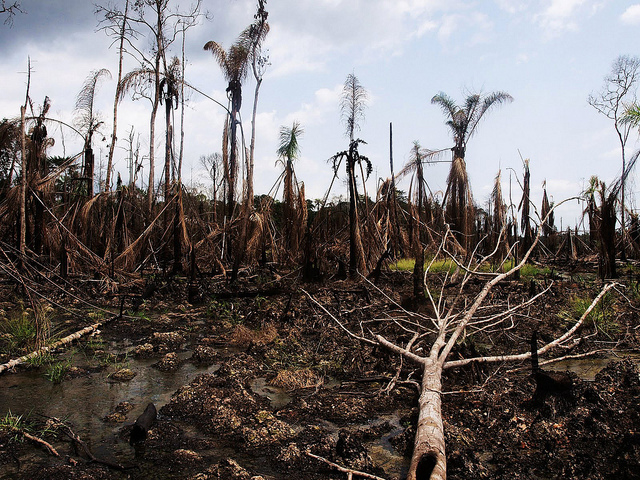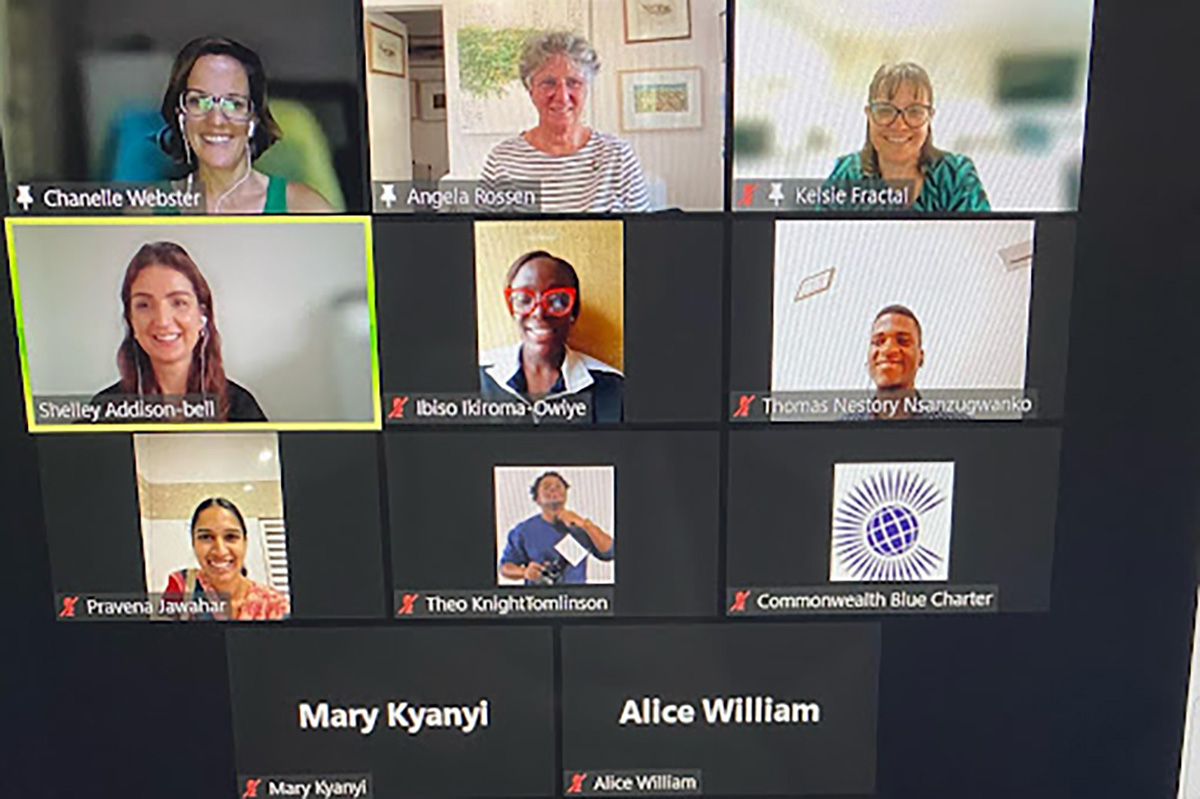"Environmental degradation in the Niger Delta"
September 8th, 2014 The Niger Delta is a a major source of revenue for Nigeria, but as Elijah Elaigwu, 25, a Correspondent from Nigeria writes, the wealth does not benefit residents of the region. He looks at the problems and solutions.
The Niger Delta is a a major source of revenue for Nigeria, but as Elijah Elaigwu, 25, a Correspondent from Nigeria writes, the wealth does not benefit residents of the region. He looks at the problems and solutions.
The Niger-Delta is one of the most investment-attractive regions in Nigeria, full of life and natural endowment with diverse culture and heritage. It is the pillar of Nigeria’s budding economy and the heart of tourism in West Africa.
The region holds a global perception as rich oil producing area but finds herself in the most dramatic irony of our time, where her people live in wealth amidst suffering, poverty, a polluted environment and low life expectancy.
Since the discovery of crude oil in 1956, the Niger-Delta region has suffered setback in infrastructural development due to carelessness exhibited by the oil industry. It has complicated a social situation characterized by oil pollution, environmental degradation, and destruction of aquatic lives. It has subjected the people to abject poverty and untold hardship with other negative activities that are inimical to the existence and survival of her ecosystem.
Before, the Niger-Delta ecosystem contained one of the highest concentrations of biodiversity on the planet in addition to supporting abundant flora and fauna, arable terrain that could sustain a wide variety of crops and trees, and more species of fresh water fish than any ecosystem in West Africa. But the adverse effect of oil exploration and exploitation has destroyed the glowing pride of nature in the region. The contaminated ecosystem has crippled the livelihood of the local people who take pride in fishing and depend on land for survival.
In spite of this unfavourable situation in the Niger-Delta, statistics show the Niger-Delta basin contributes about 80 per cent of the country’s annual earnings and is considered the mainstay of Nigeria’s economy. It is quite unfortunate that the people have not really felt the positive impact of her resources due to corruption and mismanagement that have robbed them of real benefit from the substantial revenues generated from crude oil. This is pictorially evident in the poor state of infrastructure and its decaying environment.
Mr. John Ukpong, a resident of Uyo, expresses his discomfort in the plight of the Niger-Delta people, saying that the rate of poverty and slow pace of development relegates most people to live in the lower echelons of life. The extracted crude oil enriches the nation’s account and place it among the sixth largest oil producing nations worldwide, yet the average Niger-Delta citizens hardly live on US$2 a day.
In discussion Dr. Michael Uduak, a research officer in Port Harcourt, confirms the impact of the Niger-Delta region to the Nigerian economy is incontestable, but the sorry state of her infrastructure and environment is an issue not just for the sufferers but for all concerned about the living environment and value of nature. To support his assertion, Dr. Michael made public some estimated data on Nigeria’s total earnings from crude oil sales yearly that shows crude oil production in Nigeria is 5m barrels per two days, at the price of $113/barrel, which means daily sales of $282.5million, monthly sales of $8.475billion, or yearly sales of $101.7billon.
The naira equivalent is 16.272trillion naira per year. Nigeria’s annual budget in 2012 was 4.5trillion naira; the question is where is the surplus?
Even so, taking a look at the pyramid of Nigeria’s annual budget expenditure, it increased from 470billion in 2000 to 4.987trillion in 2013 without making any remarkable change in the lives of Nigerians, nor the Niger-Delta people. Yet unemployment, poverty, crisis, hate, acrimony, and disorderliness has been the order of the day which has further thrown the country into the abyss of societal disorder.
In light of this, many inhabitant of the Niger-Delta region have argued that the presence of oil – supposedly an abundant blessing to them – has brought about a huge paradox in the sense that oil has become more of a curse. It marshalled political and economic marginalization of her people, but they are still fortified by the belief that if the federal government can make judicious use of oil revenue for the benefit of all and for the interest of the nation, the collapsed state of infrastructure in the Niger-Delta region would not be an issue of regional uproar and national debate.
This is an issue for the nation at large, as reliance on oil has collapsed other sectors of the economy and handicapped states of the federation that rely on agriculture for their income. It has increased the unemployment rate in the country, with many graduates roaming the street. This societal quirk calls for ideal government democratic accountability, and citizens’ cooperation to work hand-in-hand with the government to project a peaceful platform for dialogue among communities and government, civil societies and the people. They must ensure transparency and that government budgets work for the people and their environment to end the avalanche of complaints and widespread discontentment about the staggering state of infrastructure and the deteriorating environment.
The government should ensure proper financing of the Ministry of Niger-Delta and checkmate every aspect of corruption, which has been the root of the problem that has caused much damage. It must also foster the participation of the locals in the policy and politics of the nation.
photo credit: Sosialistisk Ungdom – SU via photopin cc
…………………………………………………………………………………………………………………
About me: I am a young, proactive, and result-oriented person with an unending quest for excellence.
I am highly creative and motivational in nature, and always work towards achieving set goals in life. I find fulfilment in writing and addressing issues with skilled professionalism.
…………………………………………………………………………………………………………………
Opinions expressed in this article are those of the author and do not necessarily represent the views of the Commonwealth Youth Programme. Articles are published in a spirit of dialogue, respect and understanding. If you disagree, why not submit a response?
To learn more about becoming a Commonwealth Correspondent please visit: http://www.yourcommonwealth.org/submit-articles/commonwealthcorrespondents/
…………………………………………………………………………………………………………………




